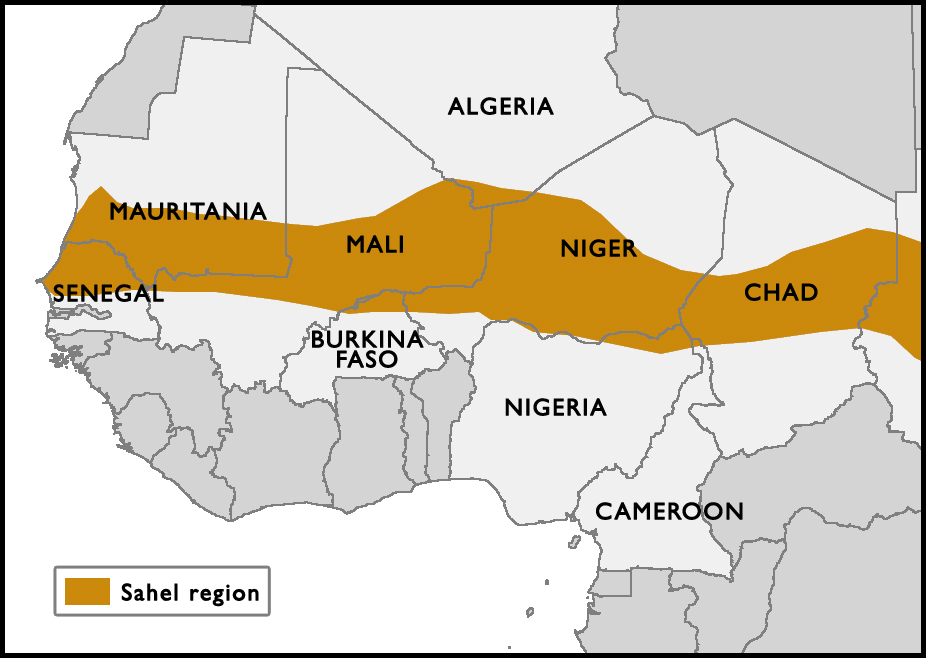About
The FREXUS project is aimed to improve security and climate resilience in a fragile context of the Sahel region through the Water-Energy and Food Security Nexus (Frexus), in Mali, Niger and Chad. The objective is to increase peace and stability in areas where resource conflict is exacerbated by climate change.
The Sahel region has experienced a deterioration of its security situation over the last decade with a rise in armed conflict, rebel groups and terrorism. Access to natural resources plays a major role in tensions between communities. In parallel, the Intergovernmental Panel on Climate Change has declared the Sahel one of the most vulnerable regions
to climate change worldwide. With a rapidly growing population, currently estimated
at more than 150 million inhabitants, whose revenues depend mainly on agriculture and livestock, Sahelian countries face growing pressures on water, land and energy resources, exacerbated by climate change and leading to competition and conflict between different user groups.
Key Outputs of the FREXUS project
- Baseline studies for the Niger River Basin and Lake Chad Basin on key factors and key actors as well as
climate stressors of existing resource use conflicts - Detailed Assessments at regional or national level
- Development and testing of a specific analytical tool to assess the linkages between resource scarcity, climate change, and conflict and security from a nexus perspective
- Identification of at least 4 areas
(local/transboundary-local, national or regional) for conducting comprehensive hotspot analysis - Awareness-raising and capacity building measures for key stakeholders
- Assessment of the impacts of climate change and climate variability in the Niger Basin and the Lake Chad Basin
- Application of the assessment tool in at least 4 specific target areas (hot spots)
- Establishment and Endorsement of action plans with stakeholders
- Identification of activities (at policy and operational levels) related to the 4 target areas to counter
existing challenges, mitigate resource conflicts and provide options for climate resilient development - Implementation of Stakeholder dialogues
- Conflict sensitive Implementation of up to three measures selected by the stakeholders


